
Pilots and Air Traffic Controllers FLYING Magazine
Newer systems include the capability to display higher quality mapping, radar target, data blocks, safety alerts, and to interface with other systems such as digital flight strips:. This ADS-B traffic information is then sent to each Air Traffic Control facility and will soon be the primary source of air traffic data. Talking to the tower.

Air Traffic Control Tower Stock Photos, Pictures & RoyaltyFree Images
The air traffic control radar beacon system (ATCRBS) is a system used in air traffic control (ATC) to enhance surveillance radar monitoring and separation of air traffic. It consists of a rotating ground antenna and transponders in aircraft. The ground antenna sweeps a narrow vertical beam of microwaves around the airspace. When the beam strikes an aircraft, the transponder transmits a return.
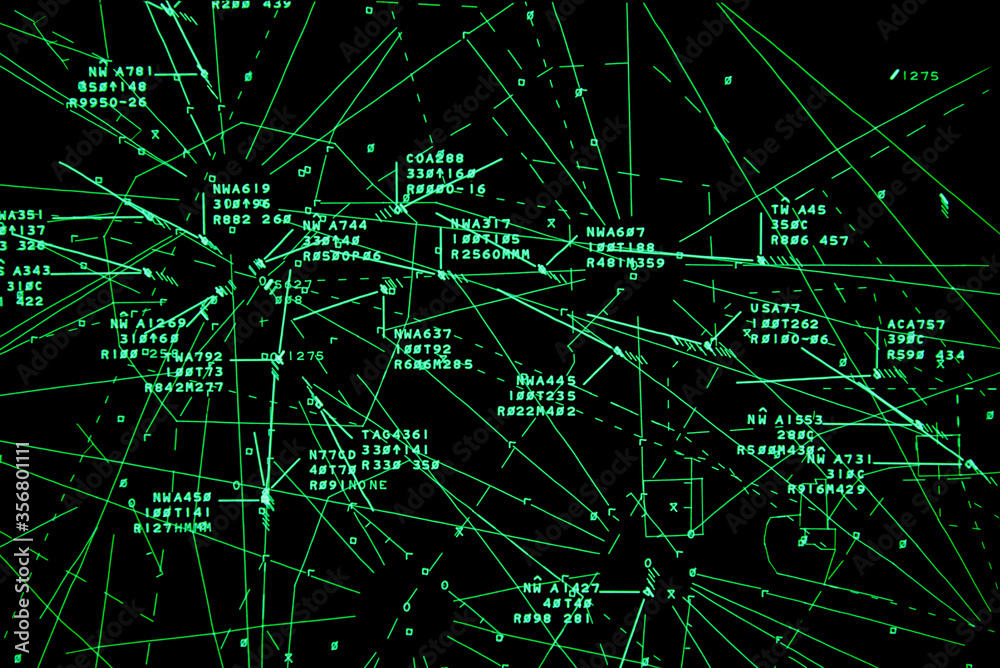
Air Traffic Control Radar Display Stock Photo Adobe Stock
Accordingly, the coverage of air traffic radar surveillance grew throughout the 1960s as long-range radars were deployed along important air routes. Initially, these aircraft surveillance radars had no automatic tracking capability. Controllers pushed plastic markers called "shrimp boats" around the screen to track the movement of an aircraft.
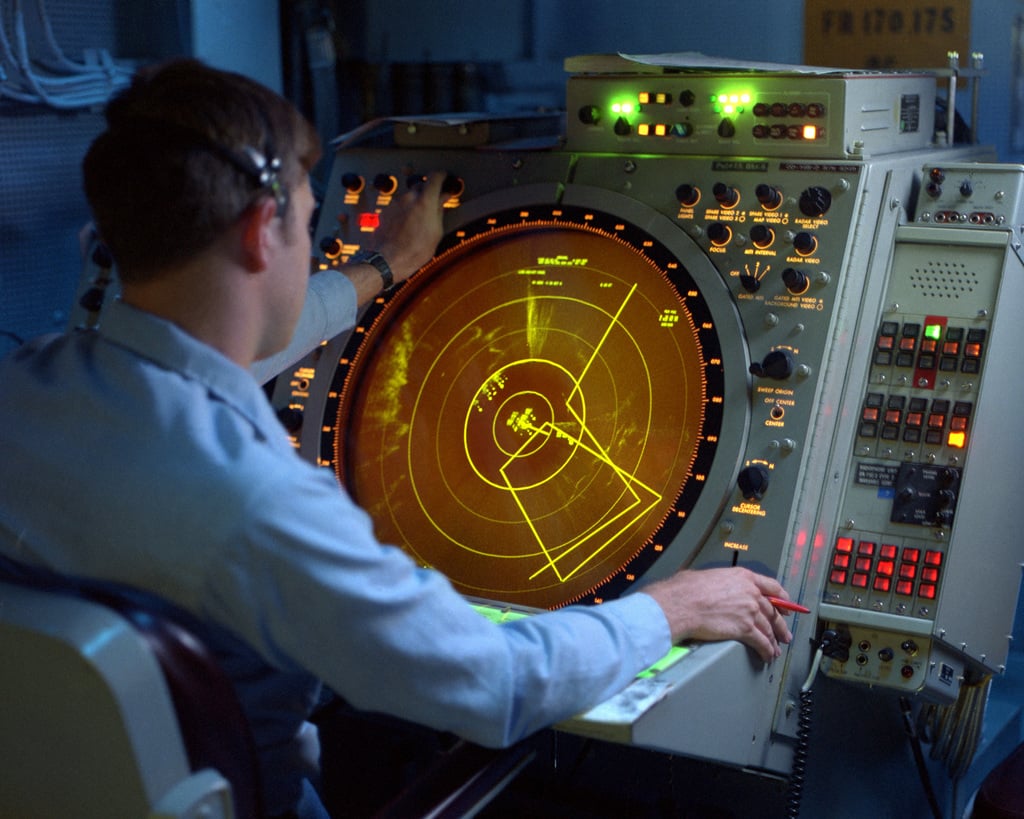
A crewman uses an Air Traffic Control Radar (ATCR) screen aboard the
Air Traffic Control Radar Beacon System (ATCRBS) The ATCRBS, sometimes referred to as secondary surveillance radar, consists of three main components: Interrogator.. This traffic display is intended to assist the pilot in visual acquisition of these aircraft. TIS employs an enhanced capability of the terminal Mode S radar system, which.
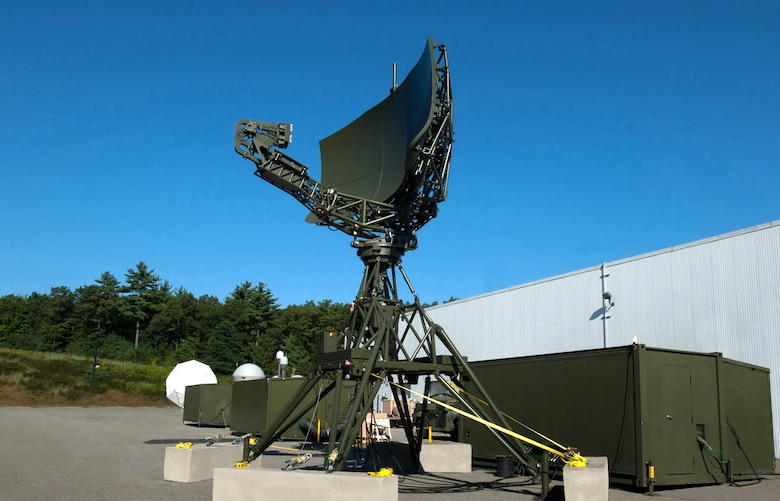
AFLCMC awards contract for rapidly deployable air traffic control
The air traffic control centers uses this system data to verify the location of aircraft within a 60-mile radius of the radar site. The secondary radar also provides rapid identification of aircraft in distress. The secondary radar operates in the range of 1030 to 1090 MHz. Transmitting power ranges from 160 to 1500 watts.
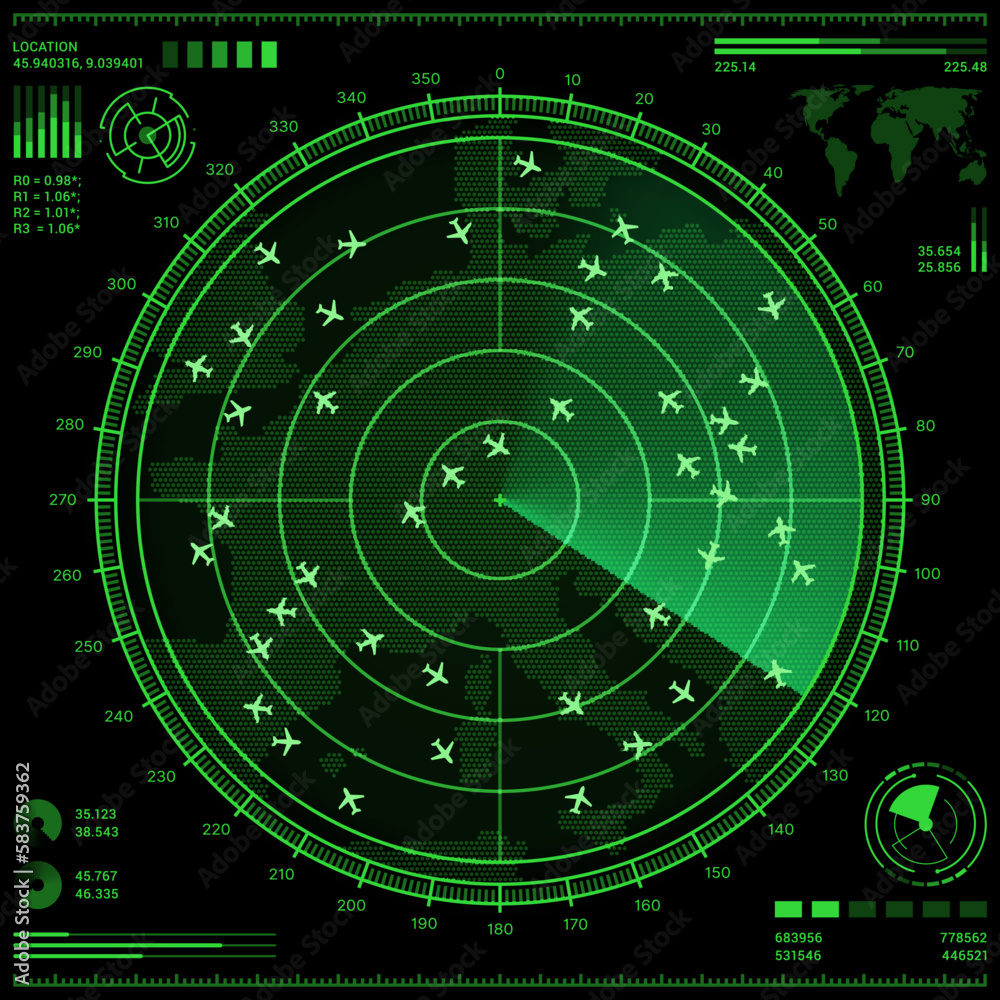
Fototapeta Air control radar screen with airplanes and world map
Different kind of radar displays exist for different kind of Air Traffic Controllers (ATC). For example: VFR controllers, the ones that generally first comes to mind when we think of air traffic controllers, and who primarily direct traffic by looking outside through the tower's glass panes, work directly on airport fields.

Air traffic control radar screen of aircraft above Luton airport, UK
Air Traffic Control Radar (ATC-Radar) is the umbrella term for all radar devices used to secure and monitor civil and military air traffic in Air Traffic Management (ATM). They are usually fixed radar systems that have a high degree of specialization. Common applications of air traffic control radars include: special weather radars.

Air Traffic Control Displays
The STARS program is increasing the safety, speed, and usability of every airport throughout the U.S. Collins Aerospace's STARS program has been employed at 11 of the FAA's largest TRACON facilities that control 80 percent of U.S. air traffic. STARS receives radar data and flight plan information and presents the information to air traffic.
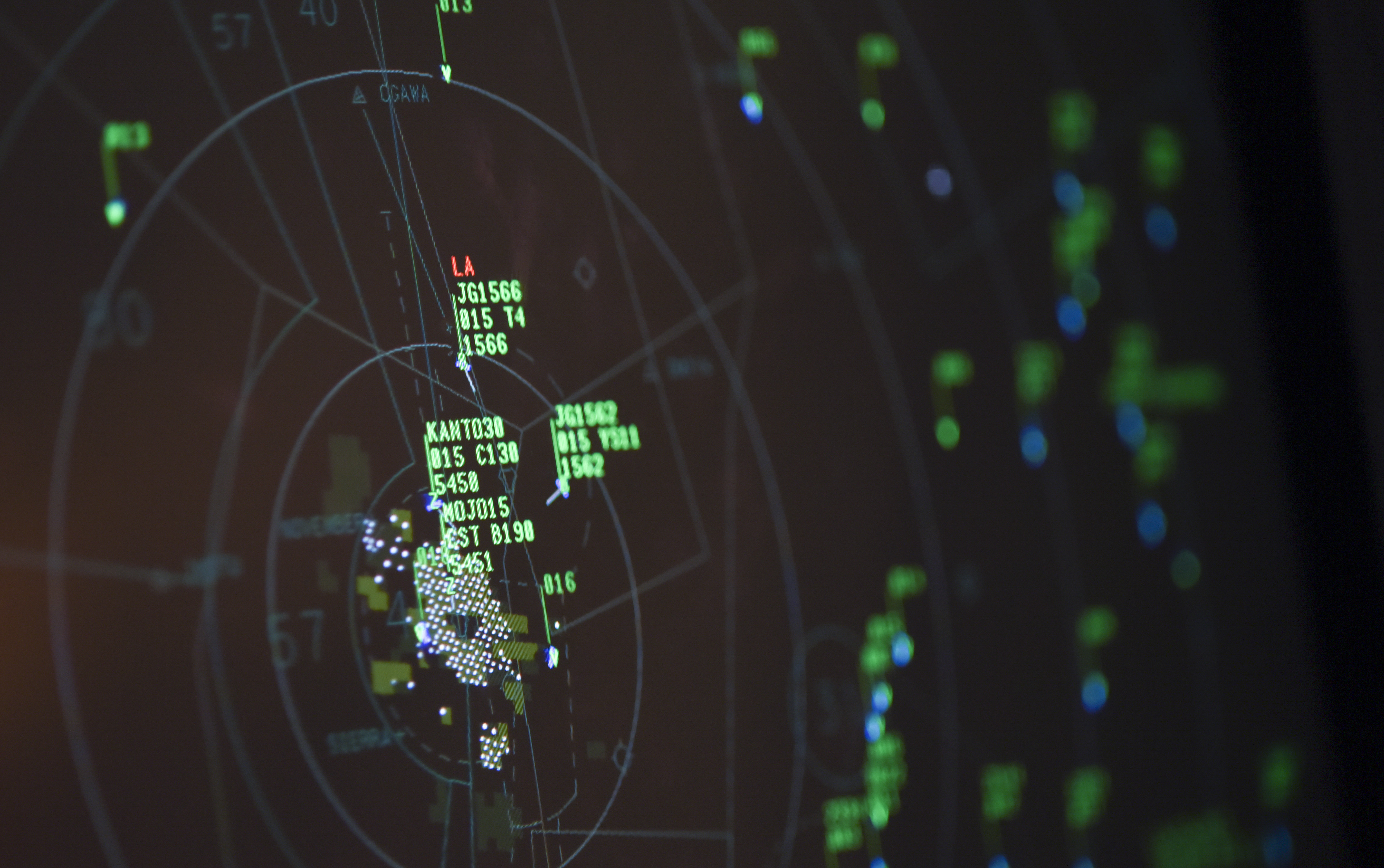
Airspace authority Yokota's ATC tower > Pacific Air Forces > Article
On 1 June, the new control centre for remote air traffic control starts operations at Stockholm Arlanda Airport. Saab Digital Air Traffic Solutions (SDATS) will equip three more Swedavia airports with the second generation of digital air traffic control towers by the end of 2022. With the new digital air traffic control centre in Stockholm (RTC.

How Air Traffic Controllers Help Planes Avoid Bad Weather
The first air traffic control tower opened in 1930 at Cleveland Municipal Airport. Pilots radioed their positions to the tower, where controllers noted the information on a map showing the positions of all planes within the airport's vicinity.. This radar scope display panel is the first of those scopes to be produced. It was installed at.

Airport Air Traffic Control Radar Screen with Planes on a Grid Stock
Specialists in the design, development and integration of radar display system software, Chelton's solutions enable Approach, Terminal, Surface Control and Homeland Defence in fixed land borne, mobile sea-borne, and deployable installations. Our Air Traffic Management Systems offer air traffic controllers unparalleled air traffic management.

Air traffic control tower operator watching radar screens Stock Image
Whether your need is for an ATC display system or avionic software testing and development, we have the in-house expertise to see the job through. Use the contact form or call 800.952.2535 to tell us about your requirements. Find air traffic control rugged displays at General Digital for reliable performance.
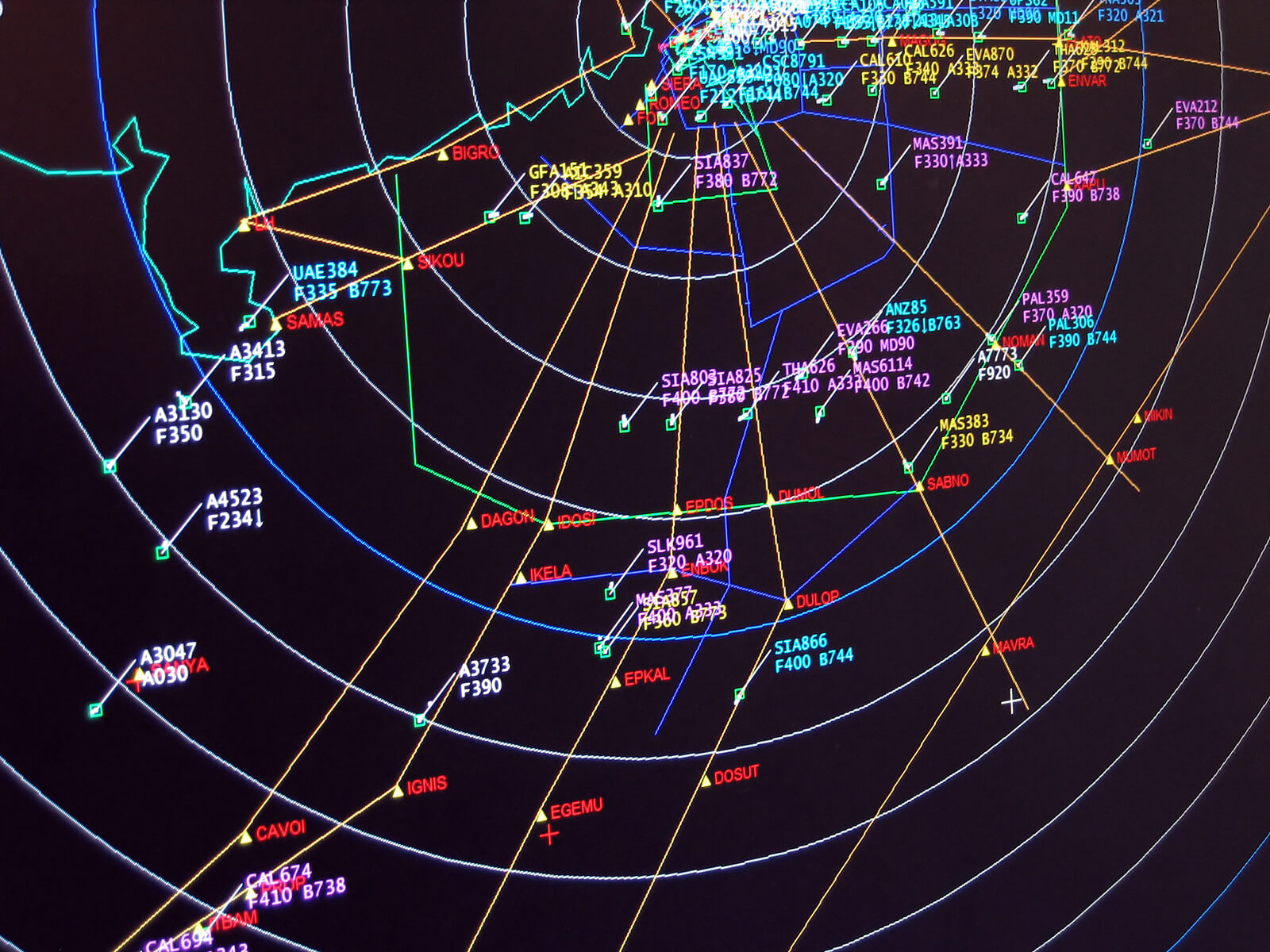
Secondary Surveillance Radar Situation display FinTk²
LiveATC.Net provides live air traffic control (ATC) broadcasts from air traffic control towers and radar facilities around the world. Airport/ARTCC Code Frequency Search (e.g., 124.400, 128.75) Site-wide search Browse Feeds Top 50 Feeds HF Oceanic Feeds Coverage Map Bad Weather Areas.
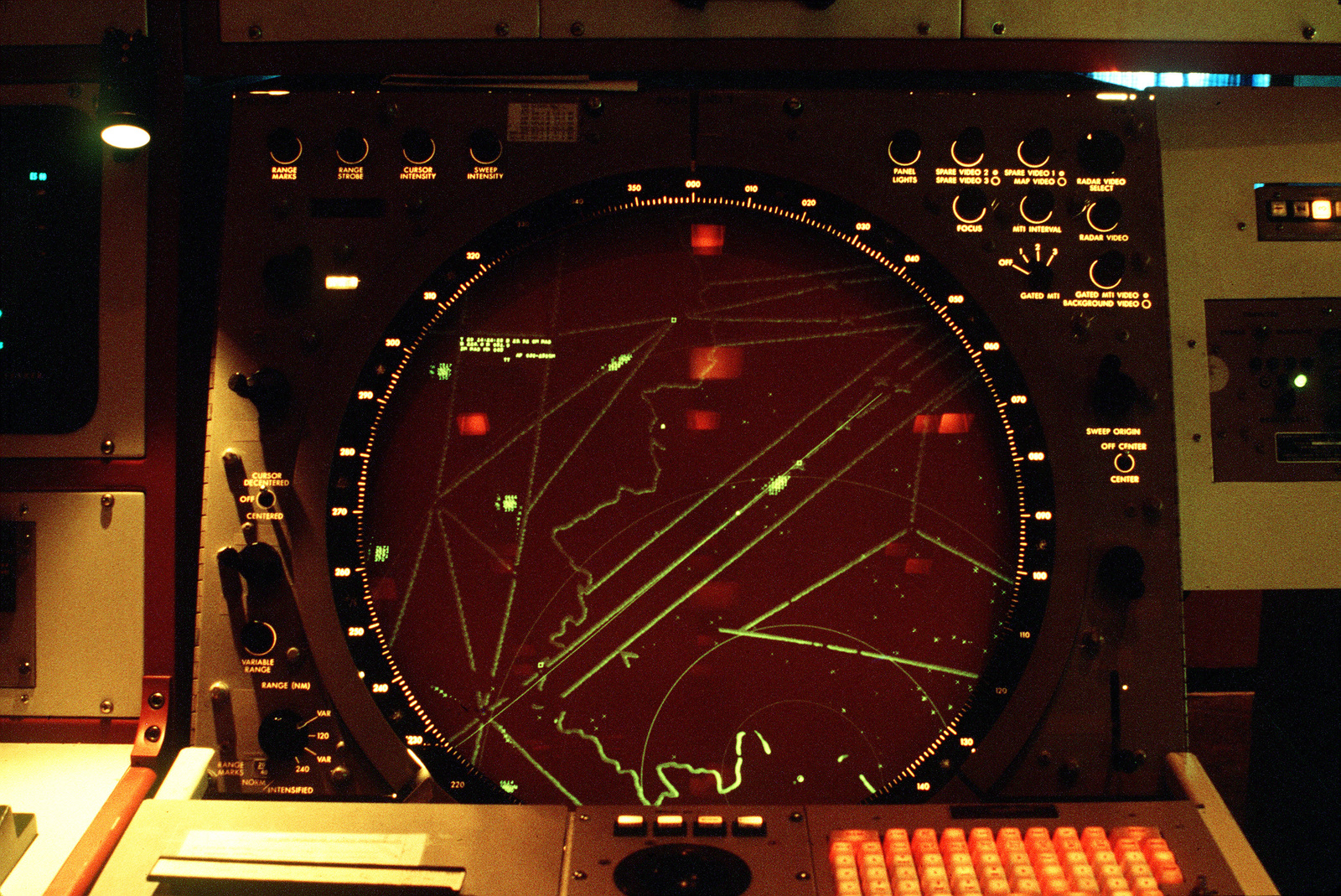
A closeup view of the south corridor en route position radar display
RADAR DISPLAY INDICATORS Radar approach and departure control functions will normally be conducted from a TRACON. Either direct view or a CTRD may be used. These functions may be performed from the tower cab:. Air Traffic Control, Chapter 5, Radar, must not be utilized. Uncertified displays must be used only as an aid to assist controllers.

A radar screen is seen as air traffic controllers keep watch using
STARS is a foundational technology in the FAA-led modernization of the U.S. airspace system. Similar to En Route Automation Modernization at Air Route Traffic Control Centers, TAMR allows TRACON facilities to use Automatic Dependent Surveillance-Broadcast data and other technologies that will make flying safer, more efficient, and more.

Air traffic control radar system gaining ground, testing in sight
Identify the aircraft as follows: As described in paragraph 5-3-2, Primary Radar Identification Methods, or paragraph 5-3-3, Beacon/ ADS-B Identification Methods. En route. Ensure that all primary targets are displayed when radar identification is lost or is questionable. FAA Order JO 7110.65, Para 5-4-3, Methods.